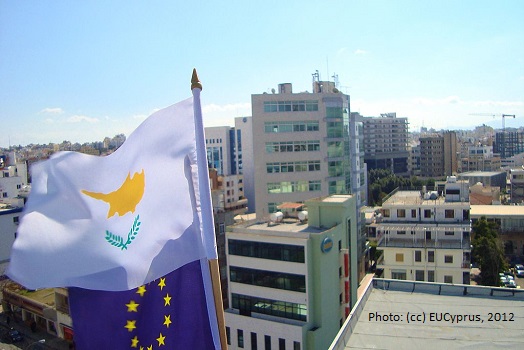UN Secretary General António Guterres has raised critique of the treatment of asylum seekers by Cypriot authorities as riots and confrontations spread on the island.
In his report to the UN Security Council on 3 January, Secretary General Guterres warned that the “situation of asylum seekers and refugees across the island, as well as the issue of access to asylum procedures in accordance with international law, continued to be a challenge”. While acknowledging the “challenging regional context as well as the high volume of arrivals in Cyprus in relation to the size of the population” the UN chief also recalled the “critical importance of full adherence to international legal norms in the handling of asylum seekers and refugees, wherever they may be found”. Guterres further linked government figures stating that 80 per cent of irregular arrivals to Cyprus arrive through the buffer zone separating the Turkish held Northern Cyprus to “pushbacks at sea and at official crossing points by the Republic of Cyprus”.
The report came as confrontations and riots are spreading on the island. On 4 January riot police fired warning shots to disperse a group of around 200 in the town of Paphos. Reportedly, the group consisted of residents of the Chloraka district, located about five kilometres from Paphos, which local sources say hosts around 1,600 refugees and asylum seekers. Reportedly, 500 members of this community originate from a single town near Aleppo in Syria. On 8 January local politicians and citizens demanded increased policing and for the 6000 asylum seekers and refugees living in the Ayios Nicolaos building complex to be evicted, on the basis that they have taken over the local neighborhoods. Asylum seekers and refugees were then told to leave the building or lose their government benefits. According to the NGO KISA the: “migrant and refugee community in Chloraka and more particularly those in the Ayios Nicolaos building complex are subjected to an indiscriminate and totally inappropriate attack by the government, the police, extreme right local dignitaries and some troublemakers from their own community”. The organisation rejects statements issued by the “extreme right” leader of the Chloraka local council as well as of the minister of interior as: “hate speech as they indiscriminately target a social group on the basis of characteristics protected by law. Not only do these statements not contribute to the solution of the problems but they also harbour and strengthen racist perceptions and views that have reached particularly worrying levels in the area”. An emergency law restricting asylum seekers from residing within specific zones has been applied by police since December 2020, despite being rejected by rights groups as racist segregation.
Riots reportedly also broke out in reception camps in Nicosia. The dire conditions in camps across Cyprus has long been a concern. Conditions in the notoriously overcrowded Pournara Emergency Reception Center, 20 kilometers west of Nicosia were described as “a ticking time bomb” in December 2021, when a group of MPs “witnessed 12 children cramped in a container, sometimes without beds, blankets strewn on the floor, families with children as young as three years old, pregnant women”. In early December seven people were injured during clashes in Pournara. In January of the same year, 20 people were injured when violence broke out in the facility.
In proportion to its population, Cyprus has the EU’s highest number of asylum applications. In October and November 2021, some 4,000 asylum seekers arrived on the island according to the Interior Ministry.
For further information:
- ECRE, Med: Cyprus Seeks Commission Approval of Asylum Procedure Suspension, Arrivals to Italy Continue, Deaths and Interceptions by Libya, November 2021
- ECRE, Cyprus: Families separated by pushbacks to Lebanon – Cyprus Calls for Greater Solidarity, October 2021
Photo: (cc) EUCyprus, 2012
This article appeared in the ECRE Weekly Bulletin. You can subscribe to the Weekly Bulletin here.

